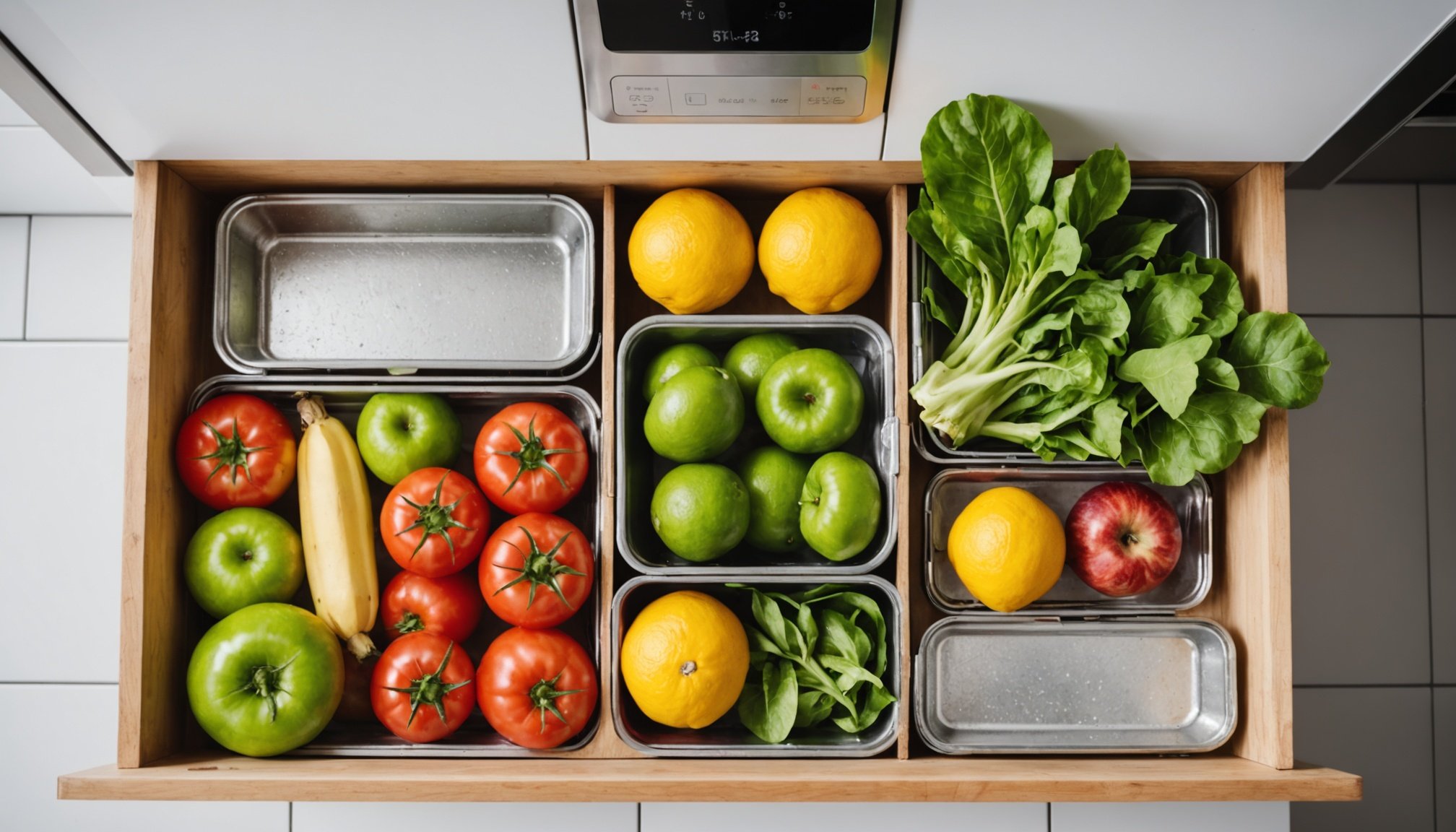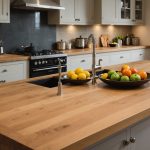Innovative Kitchen Design for Sustainability
Creating an eco-friendly kitchen design involves integrating principles that focus on sustainability and efficiency. This approach not only contributes to environmental conservation but also enhances the kitchen’s functionality and aesthetic appeal.
Eco-Friendly Kitchen Design Principles
The essence of an eco-friendly kitchen design lies in the choice of sustainable materials. Materials such as bamboo, reclaimed wood, and recycled metal are popular for their minimal environmental impact. These materials are sourced responsibly and often processed with lower energy consumption, reducing the kitchen’s overall carbon footprint.
In parallel : Ultimate guide to maintaining oak worktops in your uk kitchen: must-know tips for longevity and care
Benefits of Sustainable Materials
Using sustainable materials in your kitchen can significantly benefit the environment. They help conserve natural resources, reduce waste, and often include innovative features like energy efficiency and longevity. For instance, bamboo grows quickly, making it a renewable resource, while reclaimed wood gives a second life to otherwise discarded materials.
Innovative Layouts
Innovative layouts play a crucial role in enhancing kitchen efficiency and reducing waste. These designs often focus on maximizing space and improving flow by organizing work zones effectively. Such layouts not only allow for smoother cooking processes but also minimize energy usage by logically arranging appliances according to their usage frequency. Emphasizing efficient layouts reduces clutter and supports a tidy, resource-conscious space.
Have you seen this : Ultimate guide to selecting the ideal uk kitchen tap: effective strategies for reducing water waste
Eco-Friendly Materials and Appliances
Choosing sustainable materials for your kitchen can significantly impact your home’s environmental footprint. Opt for surfaces and cabinetry made from resources like bamboo or recycled wood, as they are renewable and sustainably harvested. Reclaimed wood not only offers a unique aesthetic but also reduces waste and the demand for new raw materials.
Incorporating energy-efficient appliances into your kitchen set-up also supports eco-conscious living. Appliances that boast good energy ratings consume less electricity, lowering your house’s power usage. They often come with advanced features like automated settings that help reduce energy usage and food waste. For example, refrigerators with precise temperature controls ensure optimal food preservation, minimizing spoilage.
When selecting products for cooking and cleaning, making eco-conscious choices matters. Opt for cookware produced from eco-friendly materials such as recycled aluminium or stainless steel. These materials not only last longer but also distribute heat evenly, making them energy-efficient. Cleaning products should be biodegradable and free from harsh chemicals to ensure that they don’t harm the environment.
By integrating these choices into your kitchen, you contribute to sustainability while maintaining a functional and stylish space. Exploring these eco-friendly options empowers you to make informed, lasting decisions that benefit both your home and the planet.
Food Storage and Preparation Strategies
Incorporating effective food storage solutions is crucial for extending the shelf life of items and minimizing waste. Proper storage involves organising your pantry with airtight containers, which not only keep ingredients fresh but also reduce potential spoilage. For example, storing grains and pasta in jars or using reusable silicone bags for vegetables can significantly cut down on plastic usage.
Effective meal preparation is another sustainable practice. Planning meals for the week allows for intentional shopping, which helps prevent over-purchasing and subsequent waste. Make a habit of prepping ingredients for multiple meals at once, as this is time-efficient and promotes the use of seasonal produce.
Innovatively repurposing leftovers is a key component of sustainable cooking practices. Transforming last night’s roast chicken into a vibrant salad or a hearty soup helps in minimizing food waste. Additionally, incorporating vegetable scraps into homemade broths not only enriches flavor but further reduces what might be discarded.
Adopting these strategies leads to a more sustainable kitchen environment, empowering you to make impactful choices daily. Integrating these practices not only benefits the planet but often results in cost savings, allowing you to invest in quality ingredients.
Visual Inspiration for Eco-Friendly Kitchens
Discover a world where kitchen design inspiration meets sustainability, showcasing stunning sustainable kitchen examples. These kitchens are not only functional but also aesthetically pleasing, providing a seamless blend of style and environmental responsibility.
To dive deeper into the concept, let’s explore some real-life examples that inspire sustainable living:
-
Case Study 1: A city apartment transformed with reclaimed wood cabinetry and energy-efficient appliances. This design prioritises both elegance and eco-friendliness.
-
Case Study 2: A suburban home utilising recycled materials and natural lighting. The use of LED lighting and solar panels further enhances the eco-conscious design.
Both examples highlight trends in kitchen aesthetics that align beautifully with eco-friendliness. From minimalist designs with neutral tones to bold statements with natural textures, the current trends offer diverse options.
For those seeking a modern touch, look for kitchens that incorporate technology to reduce water and energy consumption. These sustainable solutions ensure that the visual aesthetics do not compromise functionality.
By integrating these inspiring ideas and examples, anyone can effortlessly create a kitchen that is both visually appealing and environmentally considerate.











